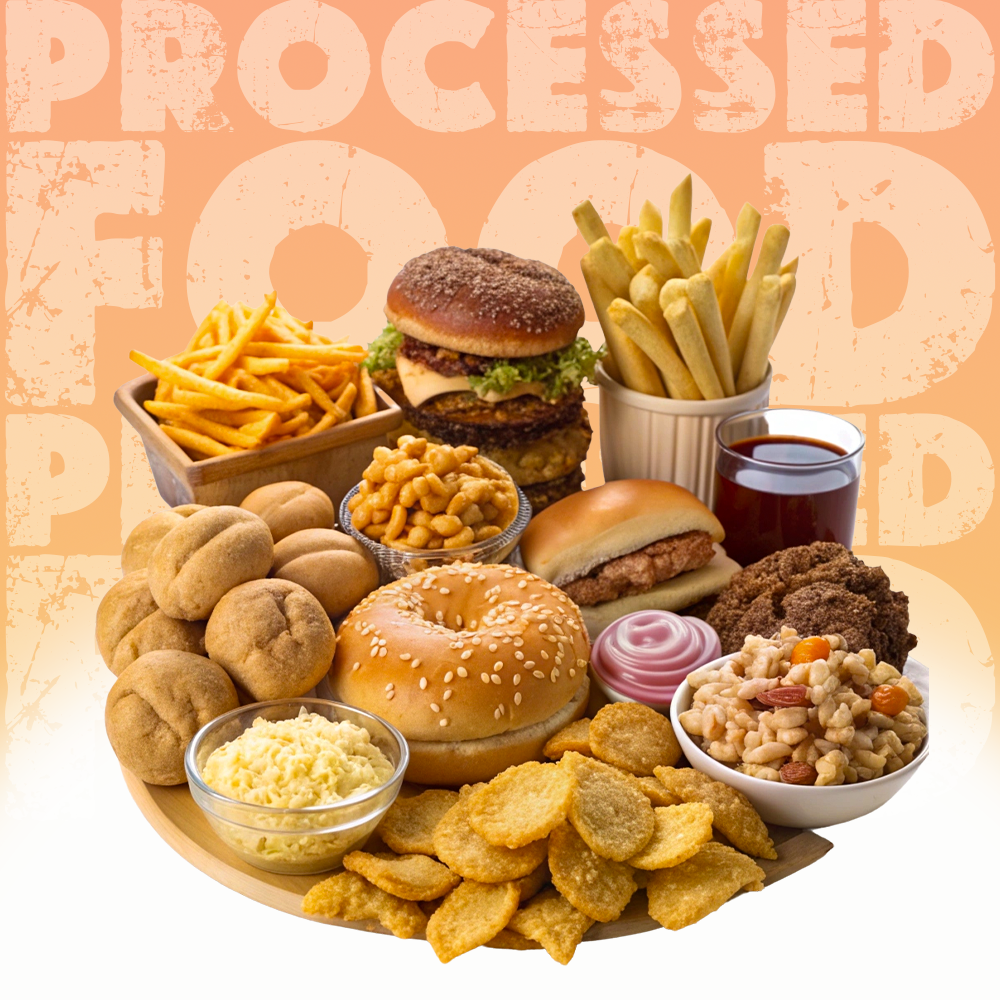We've all been there—bloated after a meal, experiencing mysterious stomach cramps, or simply feeling off without any idea why. The reality? Your intestine is trying to send you a message. You do not need to resort to a high dose or radical diet to address it. Many times, the most straightforward fixes are going back to the basics: whole, natural foods. Let us discuss why gut health is necessary, how whole food helps, and what you can start doing today to feel better - without making it very complicated.
Why is intestine health a big thing?
Your intestine does not exist only to digest food. Supporting gut health can lead to better energy, mood, and immunity. And it starts with simple choices like eating more whole food sources rich in fibre and nutrients. This affects your mood, energy, immune system and even your color. When the digestive balance is away, you can experience:
-
Endless bloating or gas
-
Unpredictable trips to the bathroom (too frequently or not frequently enough)
-
Low energy, even after meal times
-
Breakouts or inflammation on the skin
Most of this rests on your intestine microbiome—the trillions of bacteria that call your digestive system home. Some are good, some are bad, and what you eat determines which people win. Supporting natural digestion through balanced nutrition plays a key role in this process.
How Processed Foods Mess With Your Gut
We are living in a convenience world—packaged food, fast food, meals with tons of preservatives. These foods tend to:
-
Do not have fiber, which your gut bacteria love and require to be healthy. Choosing whole foods can help ensure you're feeding them what they need.
-
Have artificial additives—things your body can't recognize, so it creates inflammation.
-
They're filled with sugar—which fuels the harmful bacteria and unbalances your gut.
Ever notice how you feel lethargic after a fast-food dinner? That's your gut working overtime to digest something that doesn't look anything like real food.
How Natural Foods/Whole Foods Solve the Problem
The solution isn't a magic pill—it's consuming foods your body actually knows how to digest. Here's how whole, natural foods accomplish this:
1. They're Full of Fiber (Your Gut's best friend)
Fiber isn't only for keeping you regular—it's fuel for your good gut bacteria. Including probiotics in your diet can further support this beneficial environment.
Foods such as:
-
Fruits & veggies (apples, bananas, broccoli, leafy greens)
-
Whole grains (oats, quinoa, brown rice)
-
Legumes (lentils, chickpeas, black beans).
They keep your digestion flowing smoothly and support good bacteria to thrive. Adding Beyond Food healthy snacks like oat-based options with clean ingredients is also a smart, fiber-friendly step.
2. Probiotic Foods = Good Bacteria Boosters
Probiotics are live bacteria that keep your gut in balance. Instead of costly supplements, consider:
-
Yoghurt (plain, unsweetened, with live cultures)
-
Fermented foods (sauerkraut, kimchi, kefir, miso)
-
Tempeh & pickles (the actual fermented ones, not vinegar-soaked)
Consume these daily to keep the gut environment healthy.
3. Less Inflammation, Happier Digestion
Processed foods tend to induce low-grade inflammation in the gut. Natural foods, particularly:
-
Healthy fats (avocados, olive oil, nuts)
-
Anti-inflammatory spices (turmeric, ginger, garlic)
-
Omega-3s (fatty fish, chia seeds, flaxseeds).
They calm your digestive system and ease bloating. And if you're short on time, Beyond Food bars can offer a nourishing, anti-inflammatory option without additives.
Simple Changes for a Healthier Gut
You don't require an overhaul of your diet—small, consistent changes make a huge impact.
1. Begin with Breakfast
-
Ditch sugary cereal or toast
-
Oatmeal with banana & chia seeds
-
Greek yogurt with berries and almonds
-
A spinach, almond butter, and flaxseed smoothie
2. Snack Smarter
-
Skip the chips and candy
-
Apple slices and almond butter
-
Carrot sticks & hummus
-
A small handful of nuts and seeds
3. Eat More Fermented Foods
Add a spoonful of sauerkraut to meals, drink kefir, or substitute regular pickles with fermented ones.
4. Hydrate the Right Way
Water is essential for digestion, but pop or excess coffee may disturb your stomach. Instead, drink herbal tea (ginger, peppermint) or plain water with lemon. Natural digestion thrives on these gentle, supportive choices.
Final idea
Listen to your intestine (literally). No diet suits everyone. Some require more fiber, while others prefer small, frequent food. Note how you feel after eating. Do some foods cause you to bloat? Do you feel energetic or dull after eating? Your body sends you the message—Listen and make necessary changes.
Keep it simple. When you talk about intestine health, you do not need to be correct. You just need to feed your body to foods that know it and reduce foods that keep it out of strange. You do not need to cut all the "bad" foods - just add more good people. Start small, be consistent, and your intestine will thank you. What's one whole food you'll incorporate into your meals this week?



Share:
Are 'Healthy' Packaged Foods Lying to You? How to Spot Fake Health Claims
Breaking Up with Processed Foods: A Step-by-Step Guide